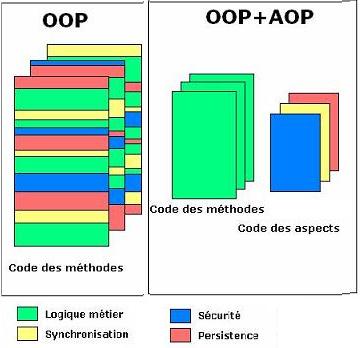vitiy C++11 functional decomposition – easy way to do AOP
This post is about making functional decomposition from perspective of Aspect Oriented Programming using C++11.
NOTE: functional decomposition 的含义是 "功能分解"
#include <iostream>
#include <functional>
#define LOG std::cout
#define NL std::endl
auto plus = [](int a, int b) { LOG << a + b << NL;}; // the body of the function ends
template<typename ...Args>
std::function<void(Args...)> wrapLog(std::function<void(Args...)> f)
{
return [f](Args ... args)
{
LOG << "start" << NL;
f(args...);
LOG << "finish" << NL;
};
}
int main()
{
auto loggedPlus = wrapLog(static_cast<std::function<void(int, int)>>(plus));
loggedPlus(2, 3);
return 0;
}
// g++ --std=c++11 test.cpp
NOTE:
输出为:
start 5 finish
#include <iostream>
#include <functional>
#define LOG std::cout
#define NL std::endl
auto plus = [](int a, int b) { LOG << a + b << NL;}; // the body of the function ends
template<typename ...Args>
std::function<void(Args...)> wrapLog(std::function<void(Args...)> f)
{
return [f](Args ... args)
{
LOG << "start" << NL;
f(args...);
LOG << "finish" << NL;
};
}
template<typename Function>
struct function_traits: public function_traits<decltype(&Function::operator())>
{
};
template<typename ClassType, typename ReturnType, typename ... Args>
struct function_traits<ReturnType (ClassType::*)(Args...) const >
{
typedef ReturnType (*pointer)(Args...);
typedef std::function<ReturnType(Args...)> function;
};
template<typename Function>
typename function_traits<Function>::function to_function(Function &lambda)
{
return typename function_traits<Function>::function(lambda);
}
int main()
{
auto loggedPlus = wrapLog(to_function(plus));
loggedPlus(2, 3);
return 0;
}
// g++ --std=c++11 test.cpp
